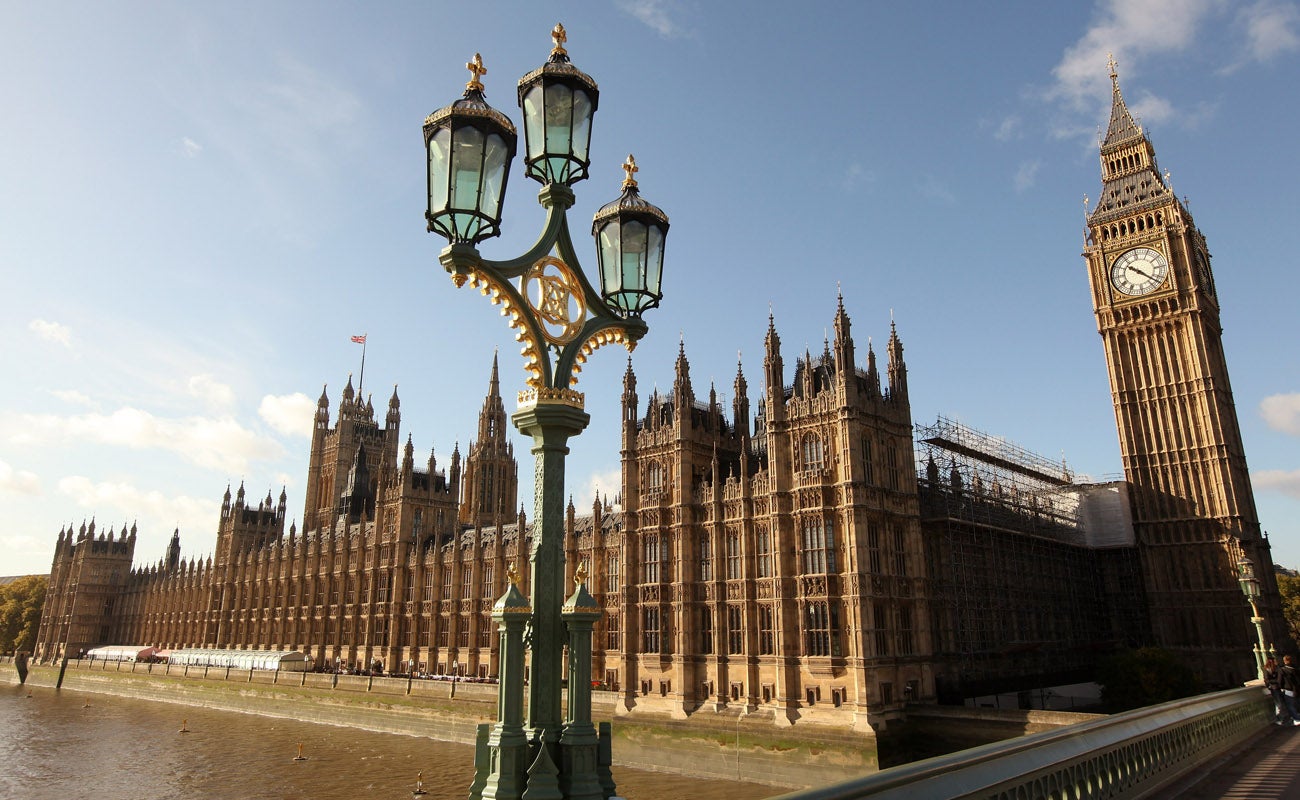MPs’ pay could climb by 40 per cent to £92,000 under pensions review
Parliamentary Standards Authority plans a formula linked to the national average salary

Your support helps us to tell the story
From reproductive rights to climate change to Big Tech, The Independent is on the ground when the story is developing. Whether it's investigating the financials of Elon Musk's pro-Trump PAC or producing our latest documentary, 'The A Word', which shines a light on the American women fighting for reproductive rights, we know how important it is to parse out the facts from the messaging.
At such a critical moment in US history, we need reporters on the ground. Your donation allows us to keep sending journalists to speak to both sides of the story.
The Independent is trusted by Americans across the entire political spectrum. And unlike many other quality news outlets, we choose not to lock Americans out of our reporting and analysis with paywalls. We believe quality journalism should be available to everyone, paid for by those who can afford it.
Your support makes all the difference.MPs’ salaries could soar to as much as £92,000 a year – a leap of more than 40 per cent - under plans to link politicians’ pay to average earnings.
They are set to lose their gold-plated pensions as part of a review of their remuneration by the Independent Parliamentary Standards Authority (Ipsa), the watchdog set up after the expenses scandal three years ago.
But MPs could eventually receive handsome compensation from seeing their pay leap from £65,738 to up to £92,000 under one of a range of ideas being floated by Ipsa to take effect from 2015.
In a consultation document yesterday Ipsa dismissed the idea that their salaries should be linked to those of higher-earning public sector professionals, such as doctors or headteachers.
It said, however, that there could be a case for a “simple formula” to determine MPs’ pay increases during a five-year parliament.
“There have been suggestions that we could base the level of MPs’ pay on a multiple of national average earnings. We could then also index MPs’ pay so that it would remain at the same multiple of national average earnings each year,” it said.
“At the moment, MPs’ annual salary is approximately 2.5 to 2.9 times national annual average earnings, depending on which measure is used.”
Its review said suggestions for the appropriate multiplier for calculating salaries had ranged “from 1.5 to 4 times national average earnings”.
On the basis that the current average pay is £23,000 a year, four time that amount would produce a pay packet of around £92,000 for MPs.
Ipsa added: “Some have argued for MPs’ pay to be adjusted back up to this multiple of three. This would produce a salary of approximately £69,000.”
The watchdog signalled it did not back proposals for regionalising pay, depending on which constituencies politicians represented, pointing out that “most MPs live and work in London for a large part of the week when Parliament is sitting”.
It also rejected the notion of basing remuneration on performance or time served in the Commons and suggested a link to earnings before entering parliament would “disadvantage some candidates”.
It highlighted the idea of having two salary levels - one for the dozens of MPs who hold second jobs and another for those who give up extra work - but did not reach a conclusion on its merits.
ComRes research commissioned by Ipsa has found that there is “very little appetite” among the public for increases in MPs’ pay, and most people think the current level of £65,736 is “broadly fair”.
Ipsa confirmed yesterday that it is planning to restrict MP pay rises to one per cent in 2013 and 2014 - in line with those being imposed on the rest of the public sector.
It will produce firm proposals for MPs’ salaries next autumn with a view to the new pay structure being in place in time for the next parliament in 2015.
Sir Ian Kennedy, the watchdog’s chairman, said: “In the past this issue has been ducked, dodged or fudged to meet the political whim of the moment. Clearly that is not right.
“Ipsa’s approach is different. We want a considered, public debate where we hear as broad a range of views as possible supported by all the evidence which is available.”
Earlier this year, Ipsa announced that MPs’ pension contributions were being increased by 1.85 percentage points to 12 per cent in a bid to cut the cost of the scheme.
But yesterday’s consultation indicated that the curbs will go much further, saying the overall costs of the parliamentary pension scheme should be cut by nearly a quarter - or £2m a year.
Funding the parliamentary scheme currently costs 32.4 per cent of the payroll, and two-thirds of that bill - £8.5 million per year - is footed by the taxpayer.
Ipsa suggested capping the total costs at 24.5 per cent, which could slash the Treasury’s share of the burden to 15.43 per cent - or £6.43million.
Join our commenting forum
Join thought-provoking conversations, follow other Independent readers and see their replies
Comments